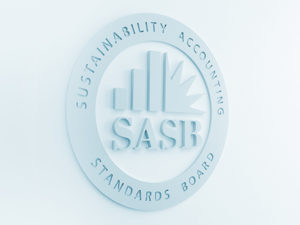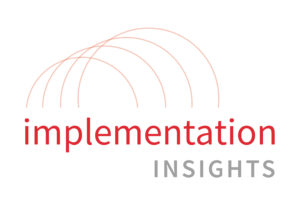
Peggy Smyth, CFO, National Grid
The following guest blog about sustainable business was written by Peggy Smyth, CFO at National Grid, US, and FSA Credential holder.
The needs of both our customers and our investors are rapidly changing. They are more socially aware than ever and want to work with companies that care about the communities they serve and the environment around them. At National Grid, we are committed to responsible and sustainable business operations, so we can meet those needs long into the future.
But beyond acting responsibly, businesses must commit to the practice of reporting and disclosure. The new culture of disclosure not only provides the transparency that key stakeholders, including investors, are seeking, but also provides a platform for businesses to improve upon from year-to-year.
Like many organisations, at National Grid, we publish an ESG databook, which provides information on our emissions, waste, and other climate-related metrics, as well as key social and governance-related data points. We hold ourselves accountable for improving upon these metrics every year. ESG has become the norm, rather than the exception, which will have long-lasting climate and business impacts. Beyond disclosing our ESG metrics, many of our National Grid finance team members have earned or are currently in the process of earning SASB’s Fundamentals of Sustainability Accounting (FSA) Credential. This will ensure our disclosure demonstrates that our management of non-financial risks and opportunities is creating mutual benefit for shareholders, employees, and the communities we serve.
As CFO of the US business, I help lead the disclosure-related activities in terms of deciding what is disclosed and how. This is something that is constantly evolving and requires collaboration with the financial community to assess and drive transparency. You could say the CFO drives sustainability, and takes employees, customers, and communities with them. The CFO’s role is critical: He or she balances shareholder returns and societal impact, and looks for opportunities to drive gains for both, which informs decision making for the business. Sustainability should be ingrained into everyday business practices and therefore, all costs and benefits of sustainability should be tracked by the finance team. At National Grid, we are investing over $4 billion a year in our infrastructure in the US-regulated business, which will increasingly be allocated toward building a clean-energy future and creating a more sustainable business.
Sustainability makes business sense. For example, we have an Investment Recovery Program based in Syracuse, NY, where we recycle many of our construction materials as we make investments in new infrastructure and replace older energy systems. This allows us to recycle, deploy, and resell tens of millions of pounds of materials in projects throughout the Northeast. Last year, National Grid introduced a green financing framework, which discloses how we can issue bonds or loans where the proceeds will be used to finance or refinance projects with environmental benefits. A month or so ago, our Niagara Mohawk Power Corporation business in upstate New York issued a $600 million green bond to help us support investments in the decarbonization of our electricity networks. This also fits with New York State’s own goals of achieving carbon-free electricity by 2040 and net-zero emissions by 2050. As part of the framework, we commit to reporting on the environmental benefits of the investments funded by the bonds within a year of issuance. Therefore, investors will be able to access information on the environmental impact of their investment, which would not normally be available to them. The prospect of such transparent reporting has been very well received by our green bond investors.
Responsible corporate stewardship and disclosing our efforts are not only the right things to do, but also necessities for the health and future of our business. Ensuring that one of the world’s largest investor-owned utilities succeeds in a clean-energy future will call for continuous improvement and increasingly transparent disclosures, and we aim to hold ourselves accountable by continuing to identify, manage, and report our sustainability-related activities.



